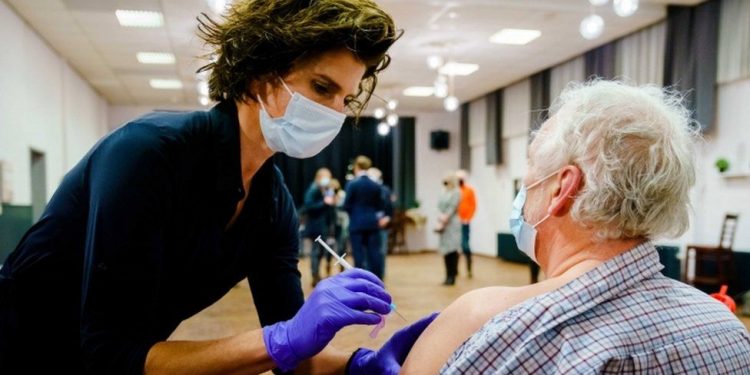COVID-19: ‘No evidence’ of AstraZeneca jab problems – WHO

The World Health Organisation (WHO) has said there is no evidence that incidents involving blood clots are caused by the Oxford-AstraZeneca vaccine.
In a statement, the WHO said it was reviewing reports relating to the jab, but it was important that vaccination campaigns continued.
It was good practice to investigate potential adverse events, it added.
Germany on Monday joined several other European countries in halting vaccinations as a precaution.
There have been a number of cases in Europe of blood clots developing after the vaccine was administered.
However, experts say the number of blood clots reported after the vaccine was no more than those typically reported within the general population.
About 17 million people in the EU and the UK have received a dose of the vaccine, with fewer than 40 cases of blood clots reported as of last week, AstraZeneca said.
What do the WHO and other experts say?
WHO spokesman Christian Lindmeier said the body was investigating the reports.
“As soon as WHO has gained a full understanding of these events, the findings and any unlikely changes to current recommendations will be immediately communicated to the public,” he said.
“As of today, there is no evidence that the incidents are caused by the vaccine and it is important that vaccination campaigns continue so that we can save lives and stem severe disease from the virus.”
The European Medical Association – which is also currently carrying out a review into incidents of blood clots – said the vaccine could continue to be administered.
The UK medicines regulator also said evidence “does not suggest” the jab causes clots, as it urged people in the country to get the vaccine when asked to do so.
Professor Andrew Pollard, director of the Oxford vaccine group that developed the Oxford-AstraZeneca jab, told the BBC’s Today programme there was “very reassuring evidence that there is no increase in a blood clot phenomenon here in the UK, where most of the doses in Europe [have] been given so far”.










